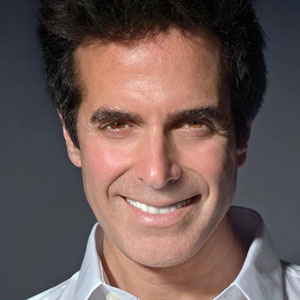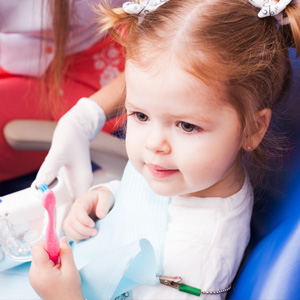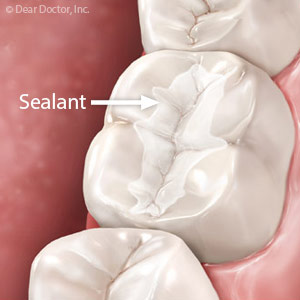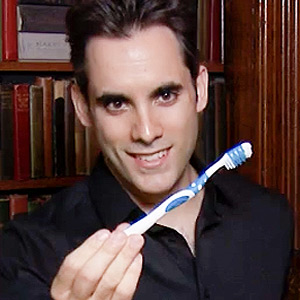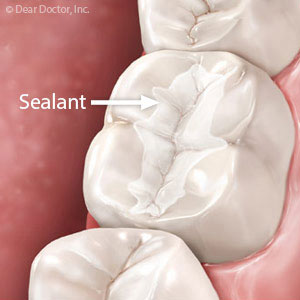

Although adults are more prone to dental disease, children aren’t immune from one particular infection, tooth decay. Some children, in fact, are at higher risk for an aggressive form called early childhood caries (ECC).
There are a number of things you can do to help your child avoid this destructive disease, especially daily brushing and flossing to remove bacterial dental plaque, the underlying cause for tooth decay. It’s also important for your child to see a dentist regularly for professional dental cleanings and checkups.
But some of their teeth, particularly the back molars, may need some extra attention to fully protect them against decay. This is because larger teeth like molars have numerous pits and crevices along their biting surfaces that can accumulate dental plaque difficult to remove by brushing alone. The added plaque increases the presence of bacteria around the tooth, which increases the risk of decay.
To minimize this possibility, dentists can apply a dental sealant to “smooth out” those pits and crevices in the molars and make it more difficult for plaque to accumulate. This is a quick and painless procedure in which a dentist brushes a liquid plastic resin or similar material onto the teeth’s biting surfaces. They then apply a curing light to harden it into a durable coating.
About one-third of children—mostly those considered at higher risk for tooth decay—have undergone sealant treatment. But the American Dental Association and the American Academy of Pediatric Dentistry recommend this preventive measure for all children between ages 5 and 7, and then later between 11 and 14 when additional molars come in. Although there is a moderate cost per tooth for sealant application, it’s much less than the potential expense of treating an infected tooth.
Combined with daily oral hygiene and other preventive measures, sealants can reduce the chances of damaging tooth decay. Keeping your child’s teeth healthy is an important part in maintaining their dental health today—and tomorrow.
If you would like more information on preventive dental care for children, please contact us or schedule an appointment for a consultation.

